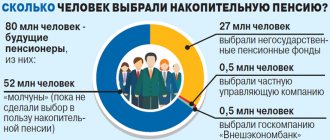published: 11/22/2017
From the contents of Art. 151 of the Civil Code of the Russian Federation it follows that moral damage is subject to compensation in one of the following cases:
- Such compensation is expressly provided for by law.
- The harm was caused by actions that violate personal non-property rights.
- Harm is caused by actions that encroach on intangible benefits belonging to a citizen.
According to Art. 12 of the Civil Code of the Russian Federation, one of the ways to protect civil rights is compensation for moral damage.
From the contents of Art. 151 of the Civil Code of the Russian Federation it follows that the obligation to compensate for moral damage can be imposed by the court. At the same time, this does not deprive a citizen who has suffered harm of the right to submit a pre-trial demand for compensation for such harm, which does not constitute a crime under Art. 163 of the Criminal Code of the Russian Federation. A different approach is not found in judicial practice.
Thus, it is possible to demand compensation for moral damage if the right to such compensation follows from Art. 151 Civil Code of the Russian Federation.
Within the meaning of Art. 163 of the Criminal Code of the Russian Federation, the objective side of extortion consists in the actions of the extortionist aimed at forcing a person to transfer the required property or the right to it to the culprit or the persons represented by him. Thus, the elements of extortion constitute only an unlawful demand for the transfer of property. In this regard, a legitimate claim for compensation for moral damage cannot be considered as extortion.
You may be interested in: Pre-trial dispute resolution.
Compensation for moral damage within the framework of consumer protection
Any claim for compensation for moral damage stated within the framework of the Law of the Russian Federation dated 02/07/1992 N 2300-1 “On the Protection of Consumer Rights” (hereinafter referred to as the “ZPP Law”) is lawful, since such compensation is expressly provided for by law (Article 151 of the Civil Code of the Russian Federation ).
In particular, by virtue of Art. 15 of the Law on PPP, the right to compensation for moral damage arises in the event of a violation of consumer rights in the presence of the guilt of the violator. Thus, a claim for compensation for moral damage in cases of consumer rights protection can be made in any cases where the rights of the consumer are violated by the relevant person (manufacturer, performer, etc.).
Grounds for claiming moral damages
In accordance with Article 151 of the Civil Code, moral damage should be understood as suffering of a mental or physical nature that is caused by acts that violate personal non-material rights or is associated with attempts on them.
It should be noted that physical harm must be caused by a violation of exclusively intangible rights .
See additional information in this article about the procedure for establishing and recovering material damage.
Moral damage includes insult to feelings that caused negative emotions, resulting in damage to mental or physical well-being.
Moral unrest may be caused:
- loss of a loved one;
- deprivation of work;
- inability to engage in social life;
- disclosure of medical confidentiality;
- dissemination of false information discrediting honor;
- restrictions on rights and imprisonment;
- moral torment associated with physical pain or damage.
Article 150 of the Civil Code provides a description of intangible benefits.
These include:
- personal dignity. Read here how to prosecute an offender for insulting a person;
- health;
- reputation;
- immunity;
- the right to unimpeded movement;
- family secret;
- the right to choose where to live;
- right to a name;
- copyright.
The grounds for compensation for moral damage are moral distress due to damage to health, loss of work, disclosure of family secrets, dissemination of false information, etc.
According to the law, both direct and indirect damage are subject to compensation . For example, during a criminal case, a relative of the victim may be entitled to compensation in the event of his death.
Moral damage can only be compensated if the following conditions are met:
- experiences are the result of attacks on intangible values or violations of personal intangible rights;
- illegal action of the person who caused the harm;
- the causal relationship between illegal action and moral damage;
- the fault of the person who caused the damage.
Compensation for moral damage in civil law is usually of a material nature.
However, the court can also rule on an open refutation of false information. Also, the court can stop illegal actions without financial compensation.
Demand for payment of moral damages or extortion?
Question: Is it possible, during a labor dispute with an employer, to demand payment of wages and/or compensation for moral damage, to say that we will inform the Federal Tax Service that you paid the salary in an envelope, without concluding an employment contract?
Answer: If this fact really took place and can be confirmed by evidence, then such a situation cannot be qualified as extortion, since the right to such a message is provided for by Federal Law of May 2, 2006 N 59-FZ “On the procedure for considering appeals from citizens of the Russian Federation” and the exercise of such a right cannot be considered as violating the rights of the employer.
Do you have a similar situation? Use the service: Online lawyer for labor law.
Question: Or, for example, in a supermarket if you don’t pay moral damages (above the purchase price) because they sold us expired products, we will inform Rospotrebnadzor that you have expired products (or we will inform the media that you have expired products).
Answer: An appeal to Rospotrebnadzor is also acceptable.
At the same time, contacting the media can be qualified as extortion in the absence of grounds for collecting moral damages, since such actions can be regarded as dissemination of defamatory information.
If such information is disseminated about a legal entity, then this does not constitute a criminal offense (Article 163 of the Criminal Code of the Russian Federation), but can be qualified as actions discrediting the business reputation of a legal entity.
If you cannot prove that such information is true, the seller will be able to demand:
- refutation of this message in the same media;
- demand compensation for losses.
It is important to understand that grounds for recovery of moral damages must not only exist, but also be supported by some evidence. It should also be borne in mind that only individuals are the subjects of criminal offenses, therefore the dissemination of any information or the sending of threats against a legal entity do not constitute a crime under Art. 163 of the Criminal Code of the Russian Federation.
You may be interested in: Collection of accounts receivable from legal entities.
How to correctly demand compensation from a seller or performer
There are 2 ways to resolve the conflict:
- Pre-trial.
- Judicial.
Before going to court, you should contact the seller with a written complaint. It is drawn up in free form indicating the following data:
- Seller information: Full name individual entrepreneur, store name, etc.
- Information about the applicant: Full name, address, contact phone number.
- The essence of the situation.
- A request to voluntarily compensate for moral damage.
- The amount of compensation.
- The period within which the applicant expects a response. Usually indicate 10-15 days.
- Intent to go to court if the issue is not resolved amicably.
- Date and signature.
Litigation is a long and complex process, so every effort should be made to reach an agreement with the offender at the pre-trial stage. To do this, you need to pay special attention to drafting the claim. Here are the basic rules for document preparation:
- The consumer should be convincing in justifying his claims.
- There is no need to request too much money.
- The seller may be encouraged to maintain a positive image and good business reputation.
- You should express a sincere desire to resolve the situation peacefully, without resorting to higher authorities.
If the seller provided an unsatisfactory response or completely ignored the appeal, it’s time to go to court. The statement of claim is drawn up according to the general rules provided for in Article 131 of the Civil Procedure Code of the Russian Federation. It states:
- Name of the court to which the petition is filed.
- Details of the plaintiff and defendant.
- Description of the current situation.
- Mention of a pre-trial attempt to resolve a dispute.
- Amount required for reimbursement.
- List of attached documents.
- Date and signature of the plaintiff.
If a person cannot or does not want to attend court hearings in person, he can use the services of a representative by drawing up a notarized power of attorney. If the defendant loses, he will have to compensate the plaintiff for all legal expenses: for filing a claim, for a lawyer, etc. Therefore, it is better to enlist the help of a competent human rights defender. This will significantly increase the chances of success.
Sentence with six zeros
We are talking about claims for compensation for so-called moral damage, which citizens make in connection with the death of loved ones, injuries at work, low-quality goods or illegal dismissals. Today, in almost every civil and almost every criminal case there are lines about compensation for moral damage.
Recently, a district court in a small Ural city considered a claim by the family of an electrician who died on the job. A safety engineer from a local company was found guilty of the death of the father of a large family. After the verdict, the family of the deceased demanded compensation for moral damage, as they had lost a loved one. And I received it. The amount turned out to be mocking - twenty thousand rubles. But in a neighboring area, a poacher will pay almost half a million rubles for the life of a killed moose cow, according to a court decision.
Lawyers have been arguing for years about how much a person’s life and health “cost” according to the court “price list.” And in each individual case, the amount of moral damage is determined by a specific judge for a specific case.
Statistics on compensation for moral damage were announced last year by the Russian Lawyers Association. So, according to the calculations of the Law Firm, large penalties, when millions of rubles are imposed, are only a few that “do not make a legal difference.”
The Association of Lawyers, speaking about meager compensation, in turn, refers to statistics from the Judicial Department of the Supreme Court of the Russian Federation. According to it, the average amount of compensation for life and health last year was 84 thousand rubles.
Basically, for harm to health or the loss of a loved one, citizens receive from 50 thousand to 200 thousand rubles by court decisions
Basically, for harm to health or the loss of a loved one, citizens receive from 50 thousand to 200 thousand rubles according to court decisions. And only 14 thousand people across the country received such payments. Against this background, individual lawyers and organizations are already urgently demanding a review of current practice.
There is an interesting proposal - to establish lifelong compensation for causing moral harm due to damage to health. This proposal makes sense. After all, if a citizen has become severely disabled, then he will not stop suffering mentally from the injury in a year. There is a wish that the amount of compensation for damages for life should begin with a certain number, but with six zeros. In any case, the compensation for life of ten to fifty thousand rubles awarded by the courts is already causing indignation among both the victims and the legal community. In the meantime, payment of even small compensation is provided once.
The Supreme Court of the country is already advocating for increasing the amount of compensation for moral damage. There is even an example where the Supreme Court of the Russian Federation, on its own initiative, awarded compensation for moral damage in the amount of 2.3 million rubles instead of the initially announced 150 thousand. In doing so, the court referred to the Convention for the Protection of Human Rights and Fundamental Freedoms, as well as the practice of the European Court of Human Rights.
Let's figure out what the amount of moral damage today consists of. According to our Civil Code, moral damage is one of the ways a citizen can protect his violated rights. The court takes into account the degree of guilt of the offender, as well as the nature of the physical and moral suffering of the victim. The law states that the judge “makes a decision taking into account the requirements of reasonableness and fairness.”
So why can you demand compensation for moral damage? All grounds are listed in the Civil Code and other laws. This is a violation of the secrecy of a will, a violation of the author’s personal non-property rights, a violation of consumer rights, a violation of rights due to improper advertising, a travel agency’s failure to fulfill the terms of an agreement with a citizen, a violation of human rights by disclosing “restricted information,” a violation of a citizen’s rights through discrimination in labor, and illegal dismissal. , damage to health and death.
It is not always possible to demand compensation for moral damage, but only if several circumstances arise at once. This is the suffering of a person due to violations of his rights, the inaction or illegal actions of those who caused the suffering, and the proven guilt of the harm-doer. Regardless of the guilt of the harm-doer, compensation can be demanded only if the harm to life and health was caused by a source of increased danger, if a person was illegally convicted or if information discrediting his honor was disclosed about him.
The Supreme Court in the materials of the plenum added to the list moral experiences in connection with the loss of relatives, the inability to continue an active social life, loss of work, disclosure of family and medical secrets, physical pain, etc.
The smallest compensation for the death of a person to his loved ones was 5 thousand rubles
Today, the amount of compensation for moral damage is of an estimated nature, because Russian legislation does not have clear criteria for determining it. For foreign courts, the recovery of high amounts of compensation for moral damage is the norm. But such demands have been considered there for many years. In our country, the institution of compensation for moral damage itself has existed for only 27 years. This is a short period of time for the judicial system. The smallest compensation for the death of a person to his loved ones was 5 thousand rubles, and the largest was just under eight million.
It is clear that it is impossible to give an exact figure yet - too much needs to be changed in the legislation, but it is high time to determine the lower limits of the price of suffering.
Introduction
An inquiry in an abbreviated form is carried out on the basis of a petition from the suspect, and there are a number of conditions for satisfying this petition, the most important of which is the admission of guilt and the amount of harm caused by the crime.
The suspect admits his guilt, the nature and extent of the harm caused by the crime, and also does not challenge the legal assessment of the act given in the decision to initiate a criminal case;
clause 2, part 2, article 226.1 of the Code of Criminal Procedure of the Russian Federation
The same rule is provided for a special procedure for criminal proceedings, directly in Art. 314 of the Code of Criminal Procedure of the Russian Federation, it is not indicated, but in the Resolution of the Plenum of the Supreme Court of the Russian Federation dated December 5, 2006 N 60 “On the use by courts of a special procedure for the trial of criminal cases” in paragraph 5 it is:
Within the meaning of paragraph 22 of Article 5, paragraphs 4, 5 of part 2 of Article 171 and part 1 of Article 220 of the Code of Criminal Procedure of the Russian Federation in relation to the special procedure for trial on charges, with which the accused agrees, filing a petition for a verdict without holding a trial in the general manner, it follows understand the factual circumstances of what the accused did, the form of guilt, the motives for committing the act, the legal assessment of the act, as well as the nature and extent of the harm caused by the act of the accused .
Clause 5 Resolution of the Plenum of the Supreme Court of the Russian Federation dated December 5, 2006 N 60 “On the use by courts of a special procedure for the trial of criminal cases”
It turns out that by agreeing to consider the case in a special manner, the accused also agrees with the size of the stated claims, is this true?!
The special procedure does not lead to recognition of the amount of property and moral damage to the accused
Clause 4, Part 1, Article 73 of the Code of Criminal Procedure of the Russian Federation provides that the nature and extent of the harm caused by the crime are subject to proof, thus the investigator establishes the extent and nature of the harm, and the accused, in a special procedure, gives consent to the nature and extent of the harm indicated by the investigator in accusation! That is, this is not agreement with the civil claim, but agreement with the accusation. But if the inquiry is conducted in an abbreviated form, what to do then? Here, at the end of the inquiry (within 15 days), the investigator makes a decision, while evidence is collected taking into account 73 of the Code of Criminal Procedure and on the basis of Part 1 of Art. 226.5 Code of Criminal Procedure of the Russian Federation:
Evidence in a criminal case is collected in a volume sufficient to establish the event of the crime, the nature and extent of the harm caused by it, as well as the guilt of the person in committing the crime, taking into account the features provided for in this article.
Part 1 Art. 226.5 Code of Criminal Procedure of the Russian Federation
That is, the nature and extent of the harm is also established by the investigator, even within the framework of an abbreviated inquiry.
Having recognized that the necessary investigative actions have been carried out and the volume of evidence collected is sufficient for a reasonable conclusion that the suspect has committed a crime, the investigator draws up an indictment. The indictment shall indicate the circumstances listed in paragraphs 1 - 8 of part one of Article 225 of this Code, as well as references to the sheets of the criminal case.
Part 1 of Article 226.7 of the Code of Criminal Procedure of the Russian Federation
At the end of the inquiry, the investigator draws up an indictment, which indicates: information about the victim, the nature and extent of the harm caused to him;
clause 8, part 1, article 225 of the Code of Criminal Procedure of the Russian Federation
Thus, by submitting a petition to conduct an inquiry in an abbreviated form, the accused agrees, as if for the future, with the nature and extent indicated in the indictment of the inquirer. However, if the amount in the indictment clearly does not correspond to reality, the accused can always file a petition for additional investigation.
The accused, his defense attorney, the victim and (or) his representative, before the end of familiarization with the indictment and the materials of the criminal case, have the right to submit the following petitions: 2) to carry out additional investigative and other procedural actions aimed at filling the gap in the evidence in the criminal case collected in a volume sufficient for a reasonable conclusion about the event of the crime, the nature and extent of the harm caused by it, as well as the guilt of the accused in committing the crime; 3) on the performance of additional investigative and other procedural actions aimed at verifying evidence, the reliability of which is in doubt, which may affect the legality of the final court decision in a criminal case;
Clause 2 and Clause 3 Part 6 Art. 226.7 Code of Criminal Procedure of the Russian Federation
True - this can lead to an investigation of the case according to the general rules of inquiry:
If one of the petitions provided for in paragraphs 1 - 3 of part six of this article is satisfied, the investigator, within 2 days from the date of completion of familiarization of the accused, his defense attorney, the victim and (or) his representative with the indictment and materials of the criminal case, carries out the necessary investigative and other procedural actions, re-drafts the indictment taking into account new evidence, provides the indicated persons with the opportunity to familiarize themselves with the re-drafted indictment and additional materials of the criminal case and sends the criminal case with the indictment approved by the head of the inquiry body to the prosecutor. If it is not possible to re-draft the indictment and send the criminal case to the prosecutor within this period due to the large volume of investigative and other procedural actions, the period of inquiry may be extended to 20 days in the manner established by part two of Article 226.6 of this Code. If it is impossible to complete the inquiry in an abbreviated form within this period, the investigator continues the criminal proceedings in the general manner, about which he makes an appropriate decision.
part 9 art. 226.7 Code of Criminal Procedure of the Russian Federation









